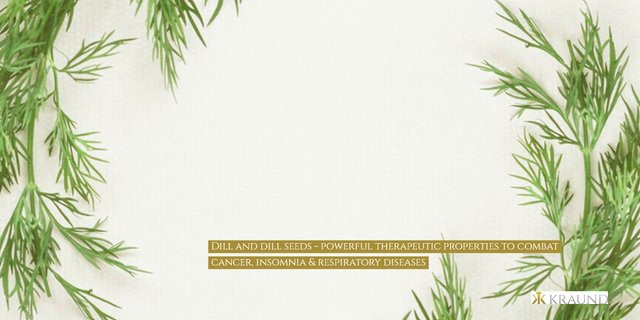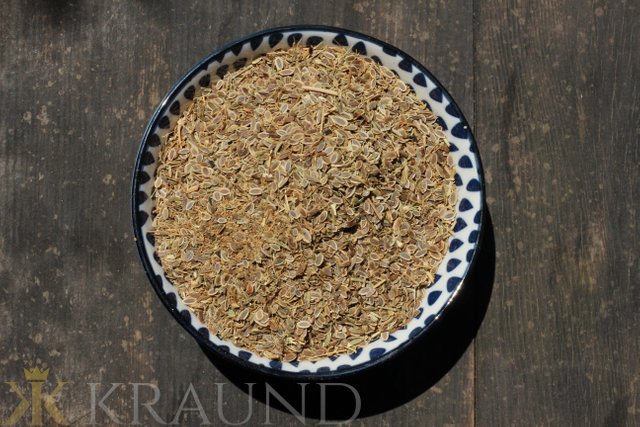
Dill is a true miraculous herb that casts out illness. Having its origin from the word Dylle, which suggests to soothe or to lull, dill seed oil is famous for its carminative properties which soothe the digestion. Dill seeds are utilised in Ayurveda for the treatment of nausea, cardiac problems, bronchitis, spermatorrhoea, syphilis and menstrual disorders. Called Shatapushpa in Ayurveda, dill seeds are one of the most promising culinary herbs utilised in Indian food, particularly during childbirth. Botanically known as Anethum sowa, dill seed essential oil is extracted from the dried seeds through a steam distillation method.
These small magic seeds and its essential oil are prescribed in Ayurvedic healing for treating dysentery, menses, nausea, nausea and for mental disturbances.
Historical relevance of Dill and its essential oil
Dill originates from the Mediterranean and Black Sea areas. Dill has been utilised globally as an aromatic spice and a healing herb. The ancient Greeks and Romans considered it as an indication of health and wealth and carried the twig of the herb in the belief that it would protect them from curses. Few sources state that superstitions prevailed in the middle ages period that dill was utilised to prepare potions to cast spells and to protect one from the ill effects of witchcraft and evil spirits.
Hippocrates, the Father of Medicine, utilised dill seeds in his drugs for oral cleansing. Ancient warriors applied an extract from dill seeds and twigs on burns for quick healing. Dill seeds have distinctive carminative properties. The well-known anti-microbial properties of the herb result in dill seeds being used for the preservation of food and the preparation of pickles.
Dill seeds are also an aboriginal remedy to treat insomnia, cold, fever, respiratory diseases, diarrhoea, dysentery, flatulence. A recent research study has shown that it helps in preventing cancer.
Chemical components and curative properties of dill seed oil
The ratio of the chemical components for all critical oils mainly depends on the topography, seasons and several other attributes of its nativity. Dill is cultivated all around the world for its valuable benefits. Results of various researches claim that dill seed oil comprises carvone, d limonene, -phellandrene, dihydrocarvone, eugenol, -phellandrene, -pinene, anethole, dillapiole, myristicin, carveol, arginine, -caryophyllene, apiole, and others. Antimicrobial, antispasmodic, anti-inflammatory, antihistamine, anti-oxidant, carminative, digestion, disinfectant, anti-hyperlipidaemic, antihypercholesterolemic, anti-fungal, aromatic, diuretic, galactagogue, sedative, stomachic and sudorific are a number of the priceless curative properties of the prised oil.
Ayurvedic health advantages of dill seed oil: Dill seeds and several other extracts from this plant, including its essential oil, is administered to individuals of all ages in Ayurveda, depending upon the nature of illnesses.

The FDA hasn't assessed the statements. The information is provided for informational purposes only. It's not intended to substitute medical advice or diagnosis by your doctor or other medical professionals. These herbs and products aren't meant to diagnose, treat, prevent or cure any illness. Please always consult your healthcare professional.